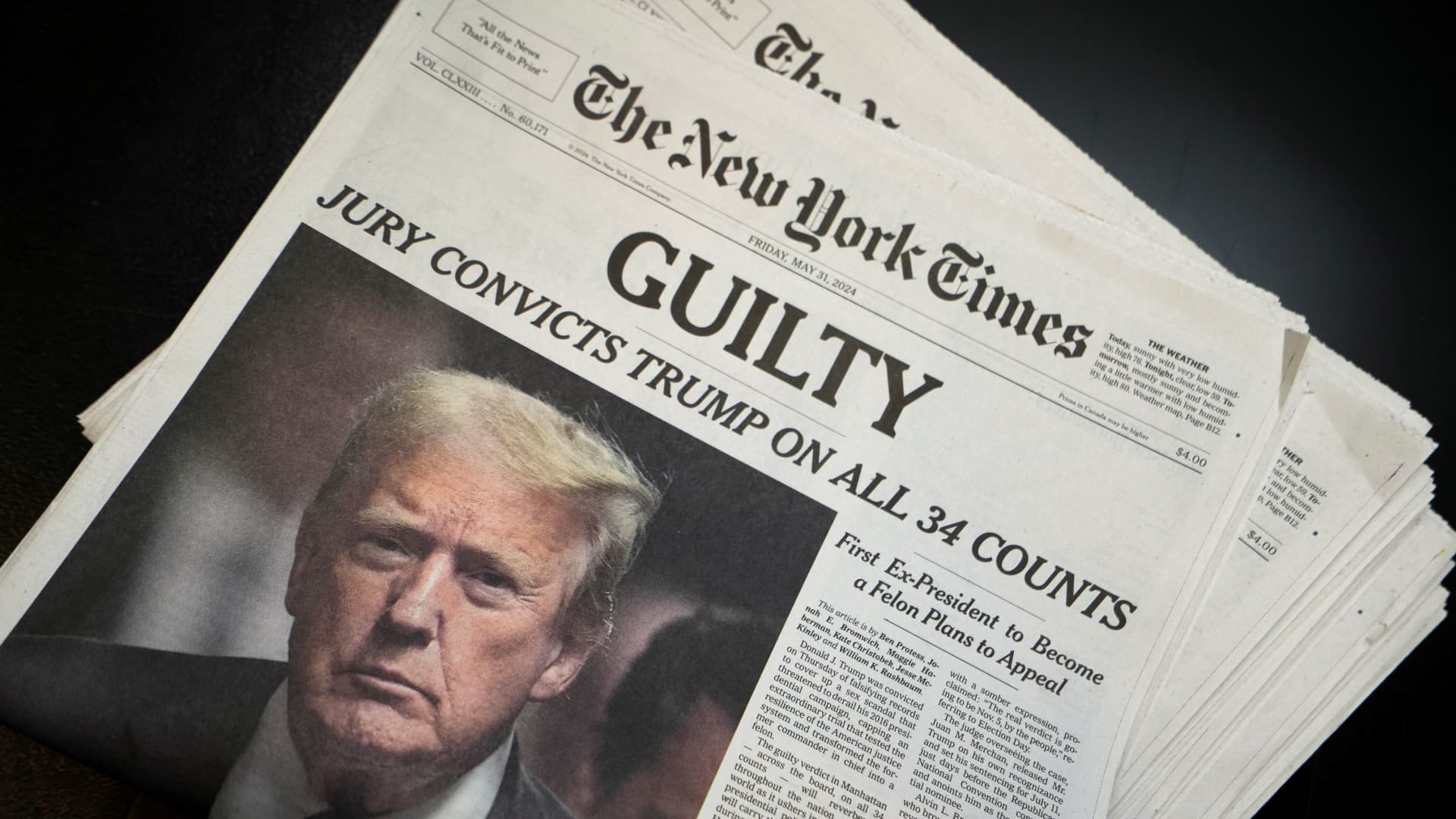Throughout his 2024 campaign, former President Donald Trump has managed to keep his political operation afloat by walking a delicate financial tightrope. The guilty verdict in a Manhattan hush money case added to a long list of legal challenges that have cost him more than $100 million in donor money to date.
Campaign finance experts say a unique combination of fundraising tactics and legal maneuvers have helped the Trump campaign climb out of a financial sinkhole that raised questions about his ability to compete in the race.
Since he left the White House in 2020, Trump has taken advantage of a little-known loophole in campaign finance law to pay for his mounting legal costs, which Federal Election Commission filings show amount to around $90,000 per day over the past three years.
Campaign disclosures show Trump has used a web of political action committees, or PACs, to funnel donor money to a leadership PAC he founded called Save America, which is primarily paying his legal bills. These groups are separate from his official campaign and not subject to the same restrictions by the FEC.
“This has been a problem for years, if not decades,” said Saurav Ghosh, director of campaign finance at the Campaign Legal Center. “Leadership PACs are often used by candidates and officeholders as kind of a slush fund to pay for whatever they want without really any oversight.”
The practice of using political donations for a candidate’s legal purposes is not uncommon. Filings show President Joe Biden recently used donations from the Democratic National Committee to pay lawyers in a classified documents case. U.S. Sen. Bob Menendez, who is running for reelection and on trial in an alleged bribery scheme, has spent $2 million in campaign funds on legal services.
These practices are technically allowed under FEC rules since they relate to a candidate’s ability to run for office. For personal legal matters, such as Trump’s New York business fraud case, experts say the use of political donations is prohibited.
Ghosh said the FEC and Congress are unlikely to pursue enforcement action against Trump, as both parties benefit from the practice.
“Trump is the most visible example because he’s doing it on a scale beyond anything we’ve ever seen before, but pretty much everybody does it,” Ghosh said. “That’s the problem.”
Ghosh said the FEC has received more than 40 complaints regarding Trump’s misuse of campaign funds but not a single case has been investigated.
With an additional three criminal cases awaiting trial dates, Trump’s legal costs are expected to continue mounting. But a new wave of megadonor support and influx of small-dollar donations following the May 30 guilty verdict has helped counter the financial drain on his campaign. In the week following the trial, Trump’s team and the RNC reported having raised $141 million during the month of May, bolstered by millions raised in the aftermath of the verdict.
Experts say the fresh wave of funding is part of a strategy from the Trump campaign to capitalize on his legal challenges and also pursue wealthier donors.
Watch the video above to learn more about who these megadonors are and how Trump has managed to keep his political operation running amid unprecedented legal obstacles.





